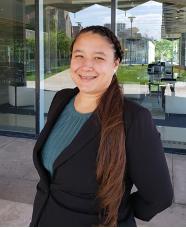The Great Lakes MHTTC is offering this training for individuals working in HHS Region 5: IL, IN, MI, MN, OH, WI. This training is being provided in response to a need identified by Region 5 stakeholders.
There is no question that the experience of domestic violence (DV) and intimate partner violence (IPV) is traumatic and, oftentimes, isolating. When survivors access services, this process can also be isolating, especially if those services are not culturally responsive. As mental health professionals, it is important to have an understanding of both the impacts of power and control dynamics as well as how social and cultural norms influence survivors’ and their families perceptions of these experiences. Service providers must be aware of how their biases may interfere with their ability to effectively engage with survivors. This session will define the core elements of culturally responsive services and identify examples of supportive approaches for survivors of DV and IPV.
Check out the recording of the first session in this two-part series!

| Victoria “Tori” Wynecoop-Abrahamson (she/her) is a citizen of the Spokane Tribe located in Eastern Washington State and the Training and Technical Assistance Manager at the National Center on Domestic Violence, Trauma, and Mental Health (NCDVTMH). She began her advocacy journey during her undergraduate career at Illinois College by establishing a sexual assault support group in response to the #MeToo movement. After graduation, she returned home to the Spokane Indian Reservation and worked as a Domestic Violence Advocate providing assistance to survivors of domestic violence, sexual assault, teen dating violence, stalking, and elder abuse. Assistance for survivors often included accessing resources for civil and criminal court cases, mental health support, and substance use services. This position encouraged Tori to pursue and complete a Master of Social Work at the University of Chicago Crown Family School of Social Work, Policy, and Practice. Prior to joining NCDVTMH, Tori provided SAMHSA-funded training and technical assistance to tribal communities and nations with a focus on building program capacity and sustainability in the areas of suicide prevention, substance use, and mental health. |